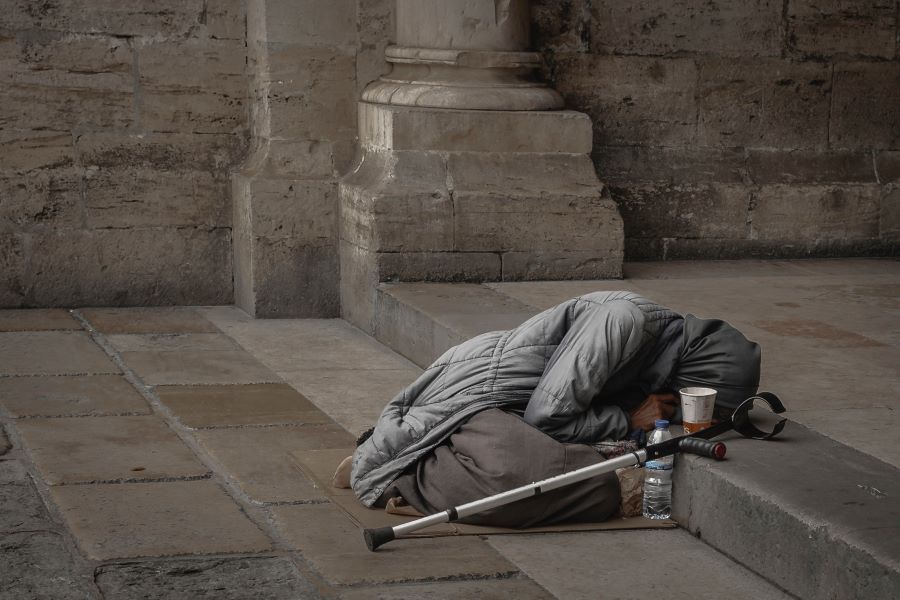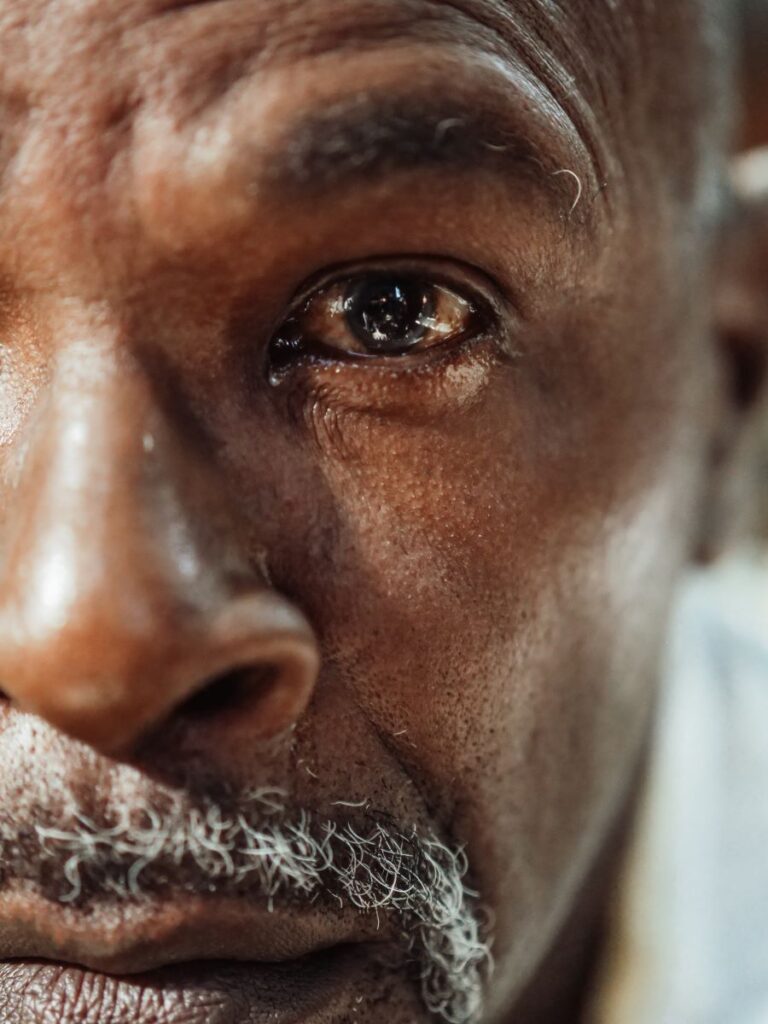
Homelessness is by no means a new problem in society. But a growing number of homelessness causes are adversely impacting baby boomers at a concerning rate many experts say hasn’t been seen since the Great Depression. Not surprisingly, high housing costs are a large reason why.
Aging Americans are increasingly facing homelessness in record numbers and living their Golden Years in shelters, in their cars, or even on the street. Once we peel back the layers of our seemingly prosperous society, the startling truth is that boomers are slipping through the cracks for a variety of reasons and finding themselves with literally no place to call home. The alarming trend is headed toward becoming a major crisis.
What’s happened with the economy and retirement plans for aging gracefully to the point where seniors are facing homelessness?
Rising Homelessness Causes Among Baby Boomers
According to recent reports, the homelessness crisis among baby boomers is reaching unprecedented levels, causing concern among experts and policymakers alike. While homelessness has long been associated with younger populations, it is becoming increasingly evident that this issue is not limited to just one age group.
Baby boomers, those born between 1946 and 1964, are facing a unique set of circumstances that have led them to become more vulnerable to homelessness.
One contributing factor to the rising rates of homelessness causes among baby boomers is the lack of affordable housing options for seniors. Many individuals in this generation are living on fixed incomes or relying solely on Social Security benefits. With skyrocketing housing costs across the country and diminishing financial resources for retired individuals, it becomes incredibly challenging for baby boomers to find stable and affordable accommodations.
Also, the aging population facing homelessness directly plays a significant role in exacerbating this crisis. As baby boomers grow older, they may encounter health issues or disabilities that impede their ability to work or maintain stable housing situations.
Additionally, as their social networks shrink due to loss of friends and family members, they may face increased isolation and have limited support systems available if they were to become homeless. These factors combined make them particularly susceptible to falling into homelessness.
Finally, the “trailing edge” boomers, those who comprise the second half of the baby boomers generation and who are now mostly in their 60s, became adults at a time of back-to-back downturns in the economy, which according to some financial analysts, set many behind in accumulating wealth and properly planning for retirement.
Economic Factors: Job Loss and Financial Instability
To continue to explore these times, of which my husband and I (both of us are in our early 60s and at the tail end of the boomers), economic factors, such as job loss and financial instability, play a significant role in the growing numbers of baby boomers facing homelessness. The impact of the 2008 recession on this generation and contributing to homelessness causes cannot be overstated.
Many boomers lost their jobs or experienced drastic salary cuts and eliminated benefits and pensions, leaving them struggling to make ends meet. Today, with limited savings and a lack of affordable housing options, some boomers find themselves facing homelessness as a result.
And this grim fact is even after many seniors have made the decision to downsize and sell the homes they may have once had.
One factor that exacerbates the homelessness causes is ageism in the workplace. As boomers age, they may face difficulty in securing new employment opportunities or finding comparable positions if they lose their jobs. The perception that older workers are less productive or adaptable can lead to discrimination during hiring processes, ultimately leaving many boomer-aged individuals without stable income. This financial instability then puts them at higher risk for facing homelessness.
Further, rising healthcare costs have also contributed to the economic challenges faced by baby boomers. Many find themselves burdened with medical bills and expenses that eat away at their already limited resources. A study conducted by the University of Michigan found that nearly half of all personal bankruptcies filed were due to medical debt. For older adults who may be dealing with chronic health conditions or age-related ailments, these costs can quickly become overwhelming and push them into financial crisis.
Housing Affordability: Rising Costs and Lack of Options
Housing affordability continues to be a pressing issue in many cities across the country. As costs rise and wages remain stagnant, finding an affordable place to live becomes increasingly difficult for individuals and families. The lack of options exacerbates the problem, as there simply aren’t enough affordable units available to meet the demand.
 One contributing factor to rising housing costs is gentrification. As neighborhoods become more desirable, developers swoop in and push out long-time residents in favor of luxury developments that cater to wealthier buyers. This not only displaces low-income individuals and contributes to homelessness causes but also drives up property values in the surrounding area, making it even harder for those on lower incomes to afford housing.
One contributing factor to rising housing costs is gentrification. As neighborhoods become more desirable, developers swoop in and push out long-time residents in favor of luxury developments that cater to wealthier buyers. This not only displaces low-income individuals and contributes to homelessness causes but also drives up property values in the surrounding area, making it even harder for those on lower incomes to afford housing.
Another issue is the increasing financialization of rental housing. Large corporations and private equity funds are buying up properties en masse, driving up rents and sometimes even bypassing local regulations meant to protect tenants. This trend has led to a concentration of power in the hands of a few wealthy entities, leaving renters with little recourse when facing skyrocketing costs or poor living conditions.
What some are now touting as a “silver tsunami” with a growing number of seniors facing homelessness has strained homeless shelters and impacted their accommodations in some areas. Shelters may be ill-equipped to manage wheelchairs, higher care needs in personal care such as grab bars, climbing stairs, toileting needs, and even denture care. Some shelters have historically used bunkbed style accommodations in some housing shelters with limited space, and they may not be possible with older Americans. These changing needs are being discussed and workarounds being planned as possible with limited funding.
In order to address homelessness causes, some suggestions by politicians and housing experts have included both short-term and long-term solutions. Immediate measures such as rent control are sometimes proposed to stabilize prices and prevent sudden skyrocketing rents during times of rapid gentrification. Investing in public housing initiatives is an idea that could provide more affordable options for those struggling with high rental costs.
Long-term strategies are focusing on creating more diverse and affordable housing options throughout cities. Encouraging mixed-income developments to integrate different socioeconomic classes within neighborhoods while ensuring that low-income individuals are able to afford their homes is something being tossed around in some locales.
Health Issues: Medical Expenses and Disability Challenges
Health issues can be a major contributing factor of homelessness causes among baby boomers. Medical expenses can quickly eat up savings and push aging individuals into financial distress. With limited or no health insurance coverage (not all parts of Medicare are free and premiums are rising for some parts of the program), some older individuals find themselves unable to afford necessary treatments or medications, putting their health at risk.
Further, disability challenges further compound the problem. Many baby boomers experience chronic health conditions that limit their ability to work or perform daily tasks independently. This often leads to unemployment or underemployment, contributing to homelessness causes and making it even more difficult to maintain stable housing and cover healthcare costs.
Of course, these challenges are not exclusive to older individuals but can people of all age groups are facing homelessness challenges. However, for baby boomers who may be nearing retirement age with diminished earning potential, the consequences can be particularly severe.
Solutions being discussed focus on improving access to affordable healthcare options and strengthening social safety nets for those struggling with disabilities. By addressing these issues head-on, an opportunity to prevent homelessness among this vulnerable population and promote better overall well-being for everyone involved is possible.
Social Isolation: Lack of Support Network and Connections
Social isolation is a major issue among baby boomers facing homelessness. Many of these individuals lack the support network and connections that can provide emotional, financial, or practical assistance during difficult times. As they age, their social circle may shrink due to various factors such as the loss of friends and family members, retirement from work, or estrangement from loved ones. This isolation can be detrimental to their well-being and make it even more challenging for them to escape the cycle of homelessness.
Without a support network, baby boomers experiencing homelessness causes often miss out on vital opportunities for assistance and resources. They may not have access to information about available services or programs that could provide them with housing options or employment opportunities.
Additionally, without connections in the community or among employers, they may struggle to secure stable employment or find affordable housing alternatives, which lead to homelessness causes.
Lacking meaningful connections can contribute to feelings of loneliness and despair among this already vulnerable population. It erodes their sense of belonging and purpose while exacerbating mental health issues such as depression and anxiety. Social isolation also diminishes their ability to build relationships and form networks that could potentially assist them in regaining stability in their lives.
Addressing this issue of social isolation requires targeted interventions aimed at building strong social networks for this vulnerable population facing homelessness so they can get the help they deserve.
Mental Health Struggles: Depression, Anxiety, and Substance Abuse
Mental health struggles are often key factors in the spiral toward homelessness causes among baby boomers. Depression, anxiety, and substance abuse can all contribute to a lack of stability and support systems, ultimately leading individuals to lose their homes. It is important to recognize that these issues are interlinked, with each one exacerbating the others in a vicious cycle that can be incredibly difficult to break.
 Depression, for instance, gradually saps individuals of their motivation and energy to maintain stable employment or relationships. Combined with the financial burdens many baby boomers face due to retirement or job loss, depression can make it increasingly challenging for them to hold onto their homes.
Depression, for instance, gradually saps individuals of their motivation and energy to maintain stable employment or relationships. Combined with the financial burdens many baby boomers face due to retirement or job loss, depression can make it increasingly challenging for them to hold onto their homes.
Anxiety further compounds the problem by heightening feelings of fear and worry about an uncertain future, preventing individuals from taking necessary steps to address their circumstances. Meanwhile, substance abuse often emerges as a coping mechanism used by those struggling with depression and anxiety – providing temporary relief while simultaneously worsening mental health symptoms and contributing to deteriorating social and economic situations.
It is important to acknowledge the complex relationship between mental health struggles like depression and anxiety alongside substance abuse when discussing homelessness causes among baby boomers. By addressing these interconnected issues holistically through accessible mental health services and comprehensive addiction treatment programs, hope can be extended to help break this devastating cycle for our aging population.
Government Policies: Insufficient Safety Nets and Resources
One of the key factors contributing to the growing numbers of homelessness causes among baby boomers is the insufficient safety nets and resources provided by government policies. While many developed countries have established social safety net programs, they often fall short when it comes to adequately addressing the unique challenges faced by this specific demographic group. Baby boomers, who are reaching retirement age in large numbers, are grappling with a lack of affordable housing options, limited access to healthcare services, and inadequate pension benefits.
The Department of Housing and Urban Development will now begin tracking how many homeless people there are ages 65 and older. The information will be released as part of its national homeless population released yearly.
In recent years, there has been a general decrease in funding for social welfare programs, leaving many baby boomers without the necessary support they need during their golden years. These policies fail to account for the fact that older individuals may face increased medical expenses and may be more vulnerable to job loss or income reduction due to age-related discrimination. Existing safety nets are not designed to address the long-term needs of this generation as life expectancy rates continue to rise.
Without stronger government intervention and more comprehensive safety net initiatives tailored specifically for baby boomers’ needs, homelessness rates among this demographic group are expected to continue rising. Providing sufficient resources and support systems would not only help alleviate hardship but also prevent potential negative consequences such as increased strain on healthcare systems and higher demands placed on public assistance programs.
Conclusion: Urgent Need for Targeted Interventions and Support
The growing numbers of homelessness among baby boomers show the need for targeted interventions and support systems. It is crucial for policymakers, community organizations, and individuals alike to acknowledge this issue and take action to prevent homelessness causes from worsening.
Simply relying on traditional forms of assistance or assuming that temporary shelters will adequately address the complex needs of this population does not seem to be enough any longer.
Overall, addressing the causes of homelessness causes among baby boomers requires more than a one-size-fits-all solution. Targeted interventions that provide affordable housing options and specialized support services catered toward the unique challenges of older Americans facing homelessness can make all the difference.
The U.S. Department of Health and Human Services has prepared a list of homelessness resources and programs for anyone needing help.
Written by
Robin McClure
Robin is the author of 7 parenting books and has 3 grown children, 3 spoiled rescue dogs, and a very understanding husband. She holds a bachelor's degree in journalism and a master's degree in communications, and spends her time writing, drinking coffee, and planning the next grand adventure.



